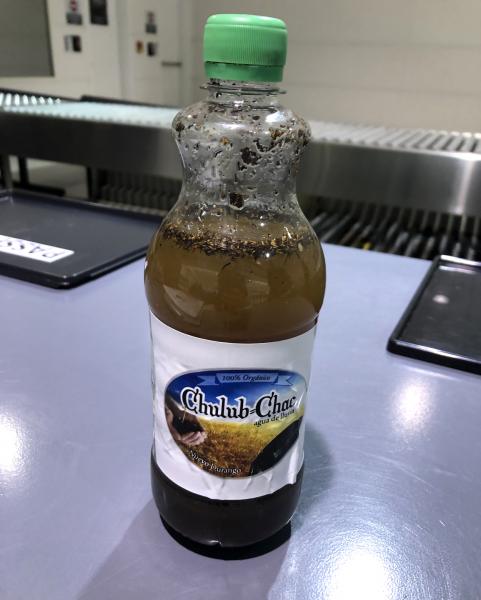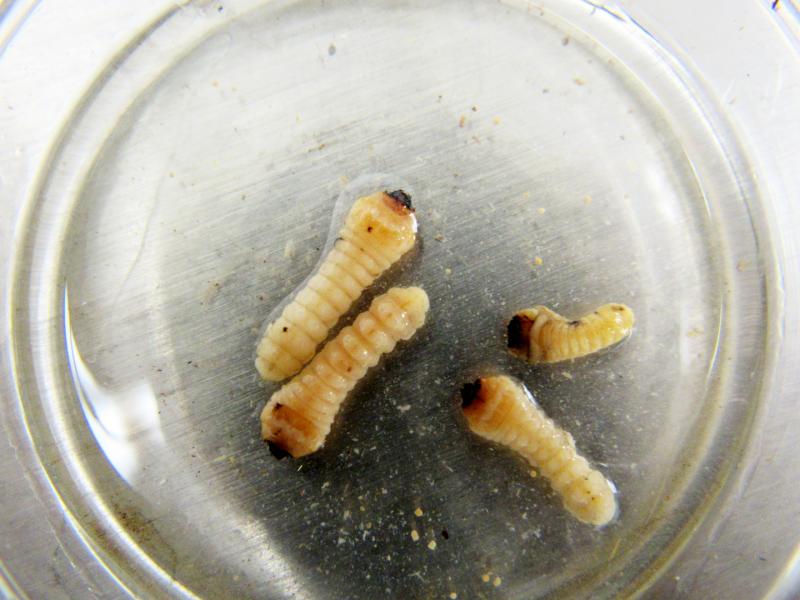Baltimore, Maryland - It’s fairly common for American tourists to purchase bottles of choice tequila during their vacations to Mexico, but it was a bottle of another substance that surprised U.S. Customs and Border Protection (CBP) agriculture specialists.

from Cancun, Mexico
While examining baggage for prohibited agriculture products at Baltimore Washington International Thurgood Marshall Airport (BWI) September 20, two Californians, who just arrived from Cancun, Mexico, declared that they had a bottle of organic liquid fertilizer.
The bottle’s label listed the organic fertilizer’s contents as soil, compost, ashes, and cattle manure.
Soil can contain many pests such as nematodes, snails, insects, weed seeds and fungal and bacterial diseases. Soil, and its components, are highly restricted and must be processed at an approved soil lab in the U.S. before it can be imported.
The manure poses a potential agriculture threat as a vector for serious cattle diseases. It is prohibited from entering the United States without an import permit and regulatory inspection by Mexican authorities affirming the cattle manure was properly treated.
CBP seized and incinerated the organic fertilizer.
On September 11, CBP agriculture specialists faced another potential threat, this time from a swarm of destructive long-horned beetle larvae. Agriculture specialists discovered frass on the shipping container floor while examining a shipment of waterslides from China that were destined to a small town in central Pennsylvania. A closer examination revealed a live larvae boring inside a damaged shipping pallet. In all, CBP agriculture specialists discovered 14 live larvae within five shipping containers of waterslides from China.

The U.S. Department of Agriculture entomologist identified the larvae as a species of Spondylidinae (Cerambycidae). Long-horned beetle larvae are voracious wood borers that can cause extensive damage to living trees or untreated lumber.
CBP issued an Emergency Action Notification to the importer that required the shipment to be re-exported, and issued a penalty for non-compliant wood packaging material.
“These two cases clearly illustrate the commitment that Customs and Border Protection agriculture specialists exercise every day to protect our nation’s agriculture and economy from a variety of threats, such as invasive insect pests and foreign animal diseases,” said Casey Durst, Director of Field Operations for CBP’s Baltimore Field Office.
CBP agriculture specialists perform a critical border security role in safeguarding America’s agricultural and natural resources from harmful pests and plant diseases. They have extensive training and experience in the biological sciences and agricultural inspection, inspect tens of thousands of international air passengers, and air and sea cargoes nationally being imported to the United States.
During a typical day last year, CBP agriculture specialists across the nation seized 4,552 prohibited plant, meat, animal byproduct, and soil, and intercepted 319 insect pests at U.S. ports of entry.
